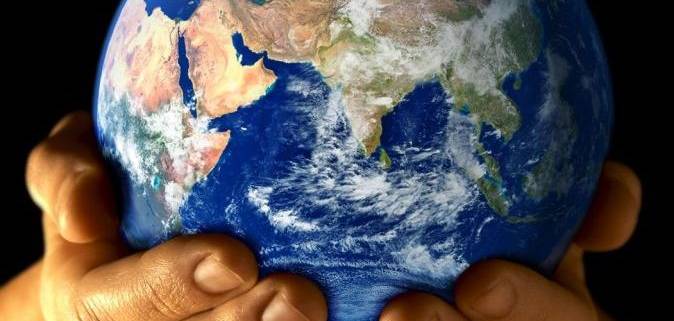
For many years, humanity has consumed far more than the resources that our planet's ecosystems can produce in a year. The Day of Overshoot, or Earth Overshoot Day was introduced in 2006, however it has not stopped growing for more than 50 years, and this deadline comes earlier and earlier in the calendar.
In 1970: December 29
In 1980: November 4
In 1990: October 11
In 2000: September 23
In 2010: August 7
In 2020: August 22
Water, energy, animals, plants, forests, everything that our Earth offers us is running out. Our renewable resources are not without limits.
The NGO Global Footprint Network then determines the date beyond which the Earth no longer provides renewable resources thanks to dozens of factors (fishing, breeding, water consumption, carbon footprint, agriculture, waste production ... ). Humanity consumed between January 1 and August 22, 2020, all the resources that the Earth was able to provide in one year. Beyond this date, everything we consume is taken from natural stocks, reducing the planet's capacity for renewal. Humanity life on its reserves . To cover the resources used by humans in 2020, 1.7 planet Earth would be needed.
“ In just 7 months, humanity has emitted more carbon than the oceans and forests can absorb each year, caught more fish, felled more trees, harvested more than the Earth can provide us in a year, ”summarizes WWF France in a press release.
Man has many means at his disposal to fight against the phenomenon. According to specialists, small daily actions to protect the environment could significantly improve or even reverse the trend. Humanity must focus on different axes.
It is entirely admissible that, on an individual basis, we can rebel and denounce the inaction of certain major industrialists, to criticize certain countries such as China and India and to be resigned to the point of not wanting to do anything. staff.
On the contrary, this resignation will lead us to the collapse of the reserves of our planet and of those who populate it. Our resignation will lead us to the inevitable.
Let's be aware of the issues that concern us.
We must fight, fight, change, explain, help and unite for what is as important as us: OUR LAND.
Let's try to convince our relatives, our friends, our neighbors, those around us and explain to them the importance of each gesture. If everyone participates as they can, at their own level, together we are able to turn things around and change the world.
Some simple rules that everyone can apply:
- Reduce the consumption of animal proteins: a very energy-intensive industry, responsible for a very large part of greenhouse gas emissions and excessive water consumption.
- 10 x more water than to produce 1 kg of grain
- 15 x more than to produce 1 kg of fruit
- 48 x more than to produce 1 kg of vegetables
According to Greenpeace livestock is responsible for 80% of Amazon deforestation and 14% of global deforestation.
- Gradually switching to a flexitarian or vegetarian diet could reduce the carbon footprint of each individual's diet by up to 50%.
- Reduce food waste: 1/3 of global food production is lost every year. If we divide this waste in the world by 2, we go back by 2 days on the day of the overrun, we correspondingly reduce unnecessary soil pollution but also the consumption of water to irrigate these same lands. We would reduce the use of pesticides and deforestation. Also, the economic and health benefits of the populations would be increased accordingly.
- Reduce the consumption of textiles: one of the most polluting industries, by promoting recycling and giving a second life to our clothes.
- Increase the production of clean and renewable energy,
- Limit or ban packaged purchases by promoting bulk purchases to limit waste, and only take what we need to limit waste.
- Fight and recover all waste, by systematically recycling,
- Improve our homes, increase the insulation of our homes and limit the use of heating and air conditioning.
- Opt for sustainable mobility (rail, public transport, bicycle and electric or hybrid vehicle): 14% of the global carbon footprint is due to our cars.
- Select a bank that does not support fossil fuels and prefer those that fight and invest against climate change.
- Improve the well-being of populations
- Refrain from jumping on the last phone, ...
If all our efforts are combined, we can have the hope that this date will be set again at the end of December in 2050!
Each of us must be willing to promote solutions that work. All you have to do is get in touch with committed citizens of the world, according to your geographic location or centers of interest, in order to speed up the implementation of new projects around the world!
The decision-making authorities have a historic responsibility to take and solutions to impose. They cannot continue to be discarded on the goodwill of individuals and companies.
Posted on 2021-03-01 17:02








Comments